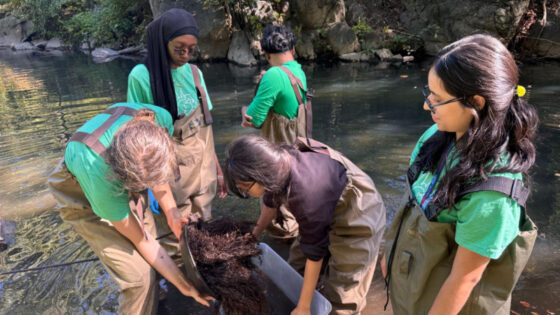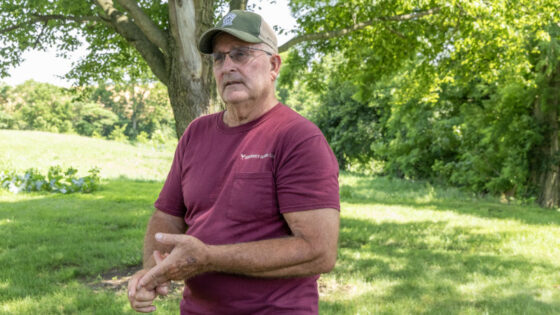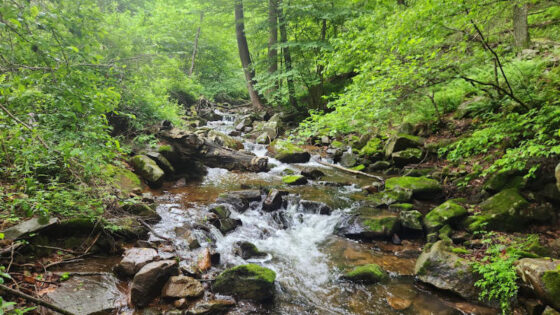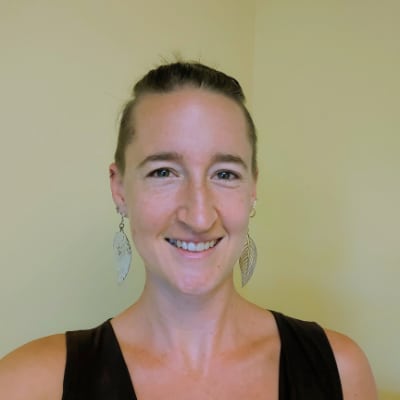
This January, Stroud Water Research Center scientists and educators teamed up to travel with a group of students to the Maritza Biological Station in Costa Rica. Students from Virginia Wesleyan University in Virginia Beach (VWU) majoring in teaching, STEM, and international studies joined the Stroud Center for one week in the Área de Conservación Guanacaste of Costa Rica.
Along with their professor, William McConnell, Ph.D., director of teacher education and an associate professor of education at VWU, they joined me (Watershed Education Specialist Kathryn Metzker), Assistant Research Scientist and Principal Investigator of the Watershed Biogeochemistry Group Diana Oviedo Vargas, Ph.D., and Maritza Biological Station Manager and Staff Scientist Rafael Morales.
Once there, the VWU students learned about environmental education in Costa Rica and studied streams in the region from their source in the mountains to their end in the sea. They participated in stream studies and educational activities each day with the Stroud Center team and with local Costa Rican educators too.
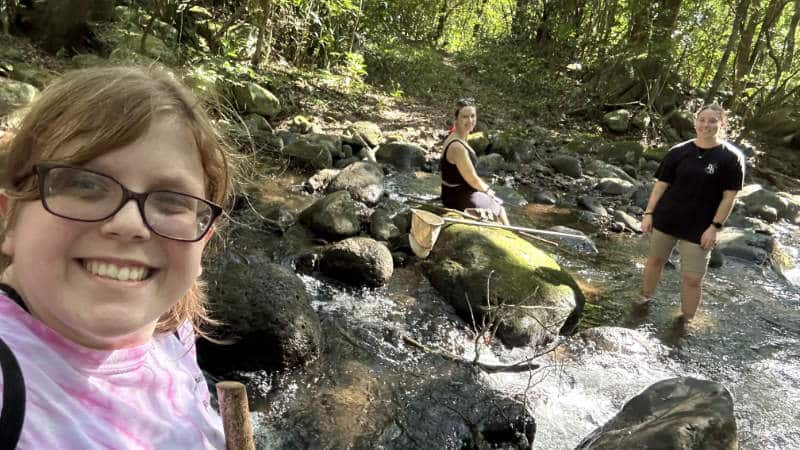
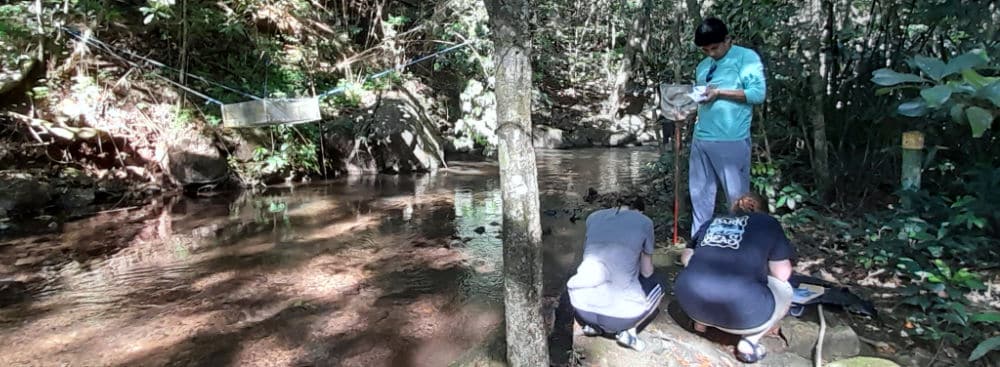
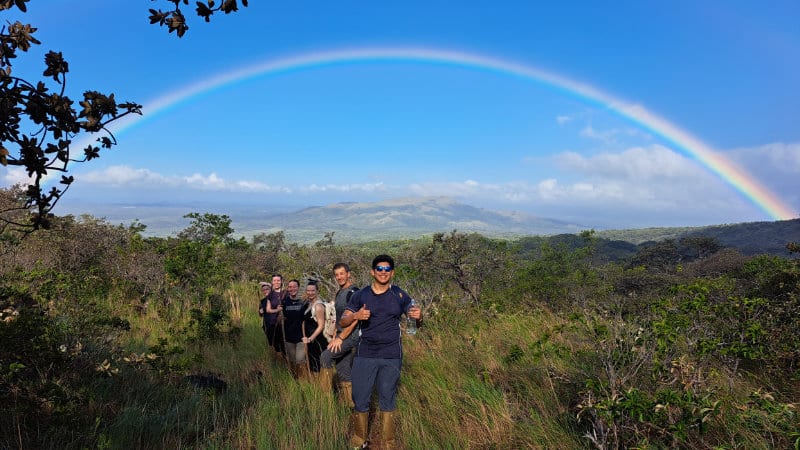
At a nearby elementary school, the VWU students enjoyed asking questions about the public school system and one teacher’s personal journey in education. As pre-service teachers, VWU students could relate to the stories of struggle and success in connecting with children. A touching conversation about how to help students with special needs and the joy of breakthroughs with those students in schools without sufficient support was understood and felt across circumstances and languages.
The local national park’s environmental education team (the Programa de Educación Biológica or PEB) shared their student program with the group, leading the VWU students through teaching exercises. Experiencing the PEB’s environmental education programs firsthand allowed students to then discuss the processes behind the activities and compare them with environmental education frameworks in Virginia.
Reflection was an important part of this study-away program. The group met nightly to continue topics they learned during the day and to process what they had experienced.
One student’s feedback read, “I really loved and enjoyed seeing the school and PEB side of education and how the education in Costa Rica varies and is similar in some ways.”
Another wrote, “My favorite part of the trip was everything, but really what stood out to me was the school and how interconnected every aspect of the education is through the environment, other grades, and outside groups/programs (PEB).”
Students took that reflection time to think deeply about the material covered each day and relate it to their own majors. As McConnell noted, “A lot of what’s happening in the Área de Conservación Guanacaste is because of international efforts. That is reflected so well at Maritza. It shows what a difference international collaboration can make.”
The impact study-away programs can make on educational and personal growth is multifaceted. Taking something learned at home into a new location can give a new perspective on the subject, adding to all of the extra benefits of cultural immersion and the joys and challenges of travel.
Before the trip McConnell said of his students, “I also want them to be able to take things from far away and find connections between what they are seeing in their backyard and what they will see somewhere else.”
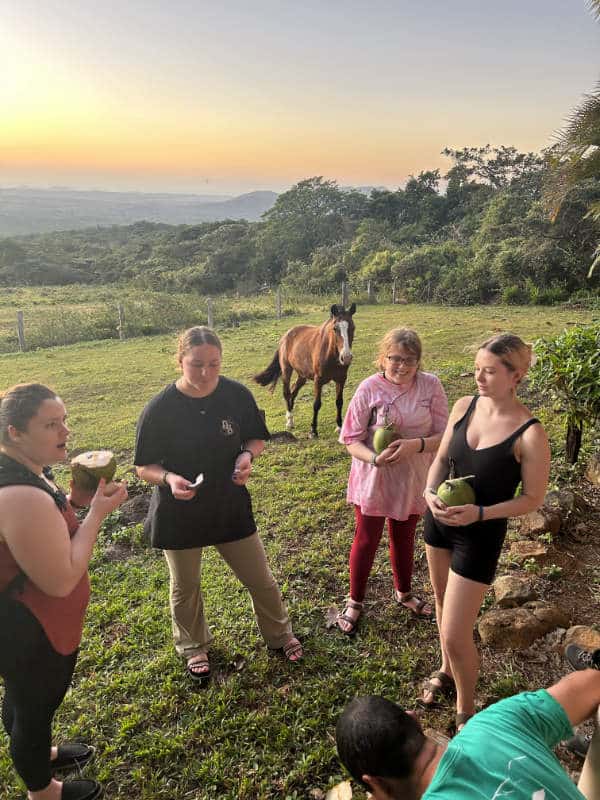
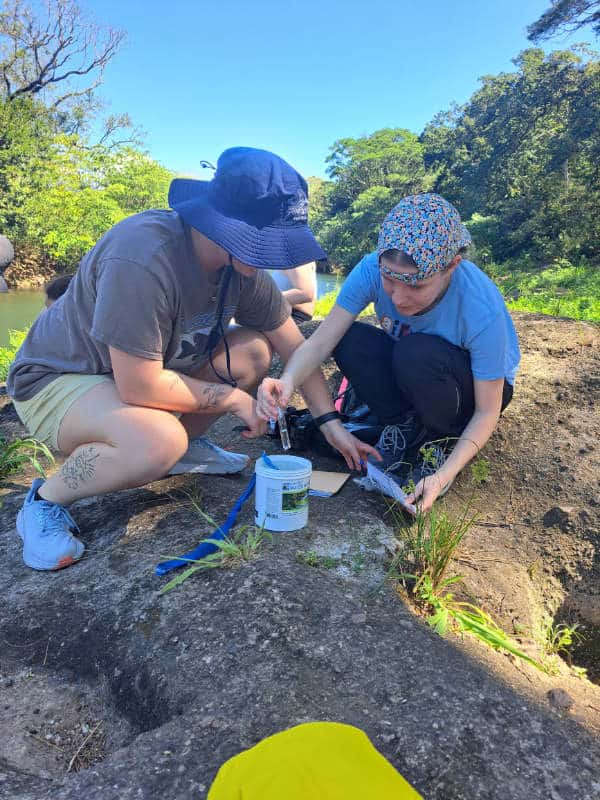
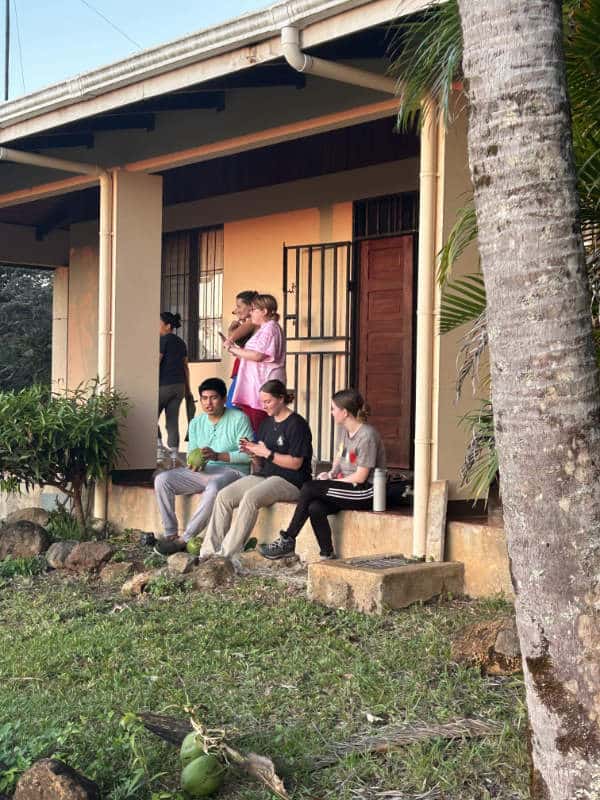
Students gave positive feedback at the end of the program, reaching that goal of making connections. One said, “When we sat down, I felt like I learned more about the culture because I could listen to the locals explain why they felt the land was so important. The time on Rafa’s porch is one that I will cherish forever.”
We look forward to offering future study-away programs in Costa Rica next school year.
The establishment of Maritza Biological Station in 1989 marked the beginning of increasingly far-flung work for Stroud Center researchers and educators. Learn more about how the Stroud Center is globally active and globally relevant.

